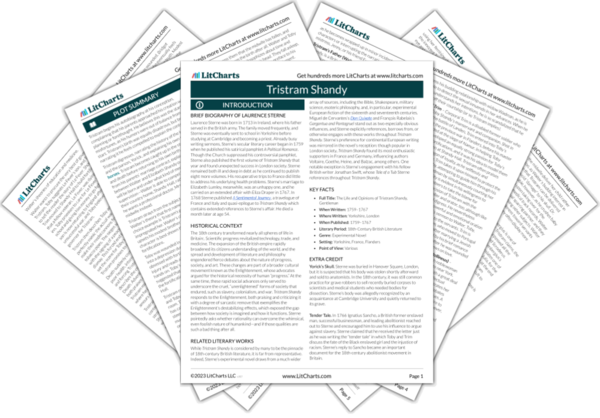Walter, writing to
Toby about women and lovemaking while he is in the bedroom with
Mrs. Shandy, implores Toby to approach love carefully and with God’s protection. He instructs Toby to shave his whole head clean every four or five days to not surprise
widow Wadman with his baldness if his wig comes off. He also tells Toby to remember “That women are timid,” not to wear his breeches too tight or too loose, and to speak softly and avoid pleasantries. He also cautions against giving widow Wadman any serious reading, like
Don Quixote, and to be careful letting her hold his hand, lest his “Asse” start kicking. Walter then recommends several ancient diets potions to treat love. He wishes Toby the best until the next war breaks out.
